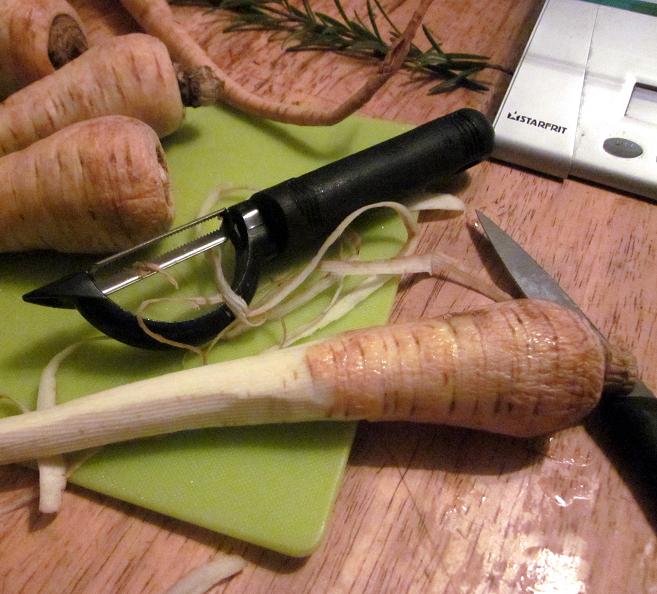 “Do not just leave washing the rice or preparing the vegetables to others but use your own hands, your own eyes, your own sincerity. Do not fragment your attention, but see what each moment calls for; if you take care of just one thing then you will be careless of the other. Do not miss the opportunity of offering even a single drop into the ocean of merit or a grain atop the mountain of the roots of beneficial activity.”
“Do not just leave washing the rice or preparing the vegetables to others but use your own hands, your own eyes, your own sincerity. Do not fragment your attention, but see what each moment calls for; if you take care of just one thing then you will be careless of the other. Do not miss the opportunity of offering even a single drop into the ocean of merit or a grain atop the mountain of the roots of beneficial activity.”
– Dogen Zenji, from “The Instruction for the Cook” (1237)
I recently hit up the White Wind Community’s English translation of Zen master Dogen’s “Instructions for the Cook” (a compact version of the seminal 1237 essay on how to be the head chef [Tenzo] for a bunch of Buddhist monks) and totally fell in love. Not only with its candid glimpses into the world of 13th century Sōtō Zen, but also it’s overall message about how food should be mindfully prepared.
You don’t need to be a eastern mystic, yoga mom, or even a bearded haiku-hipster to get with Dogen’s message: Pay attention to the way you cut, clean and cook your food! Be aware of your every movement and intent (something I wish I did more of!) and focus on the important, letting the unimportant (ie. wasted) efforts fall away. Breathe in.
It’s like communion with the cooking gods. First you clean your ritual space, attune your mind to the meal you intend to make, meditate on it, perform the ritual motions and cleanse again. Exhale.
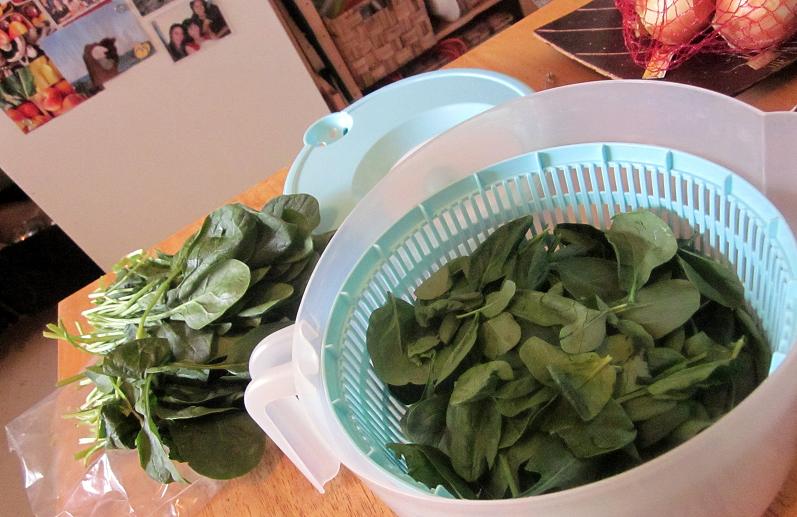 Alright, before you all assume I’ve finally hit the green tea a little too hard, check this: Learning to be mindful of prep makes a cook faster, cleaner, saner and all around better at his/her job. When you rush through your prep you make a mess, miss details, maybe forget something important. Rushing actually causes you to lose more time, crazy right? If you really put your whole being into the simple preparation of you and your guest’s food, it will show through in the final result.
Alright, before you all assume I’ve finally hit the green tea a little too hard, check this: Learning to be mindful of prep makes a cook faster, cleaner, saner and all around better at his/her job. When you rush through your prep you make a mess, miss details, maybe forget something important. Rushing actually causes you to lose more time, crazy right? If you really put your whole being into the simple preparation of you and your guest’s food, it will show through in the final result.
Now, I’m not talking about moving at Tai Chi speed. Dinner should not take four hours to hit the table while you contemplate the life-cycle of a parsnip… Cooks hustle, even Zen Buddhist ones. You can deepen you’re effort without sacrificing time and sharpen your skills to ninja-efficiency by simply paying attention to what you’re doing.
Dogen explains this balance between mind and movement, and gives a series of almost koan-like observations and suggestions for the aspiring cook. Starting with…
Cleansing
“In preparing the food, the Tenzo is responsible for examining it to ensure that it is clean.” Do not waste grains of rice when draining off the rinsing water.”
Before I do anything, the first act of any meal is to cleanse my workspace. This usually consists of emptying the sinks of any leftover dishes, wiping down the tables and cutting boards, cleaning my knives and rinsing certain ingredients.
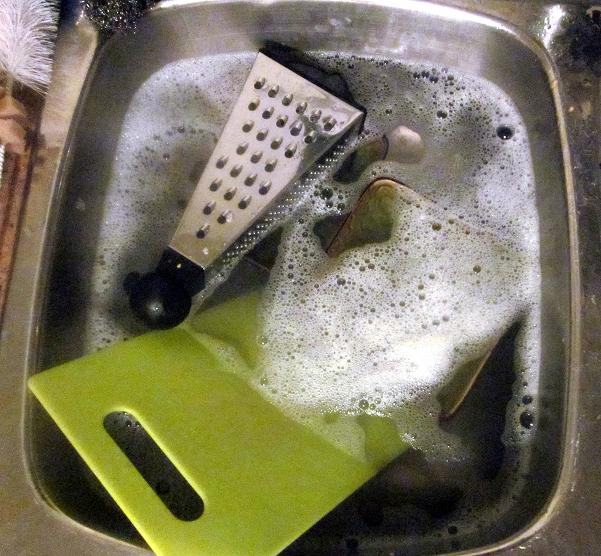 The dishes are one of my favourite kitchen chores, which I know, is weird. There is just something about being able to turn off my monkey mind for ten to twenty minutes and just get my hands in there. The warmth, the smell of the soap and the satisfying “thunk” of another dish sliding into the drain-tray, it’s so Zen. Even if I had an automatic dishwasher, I’d probably never use it.
The dishes are one of my favourite kitchen chores, which I know, is weird. There is just something about being able to turn off my monkey mind for ten to twenty minutes and just get my hands in there. The warmth, the smell of the soap and the satisfying “thunk” of another dish sliding into the drain-tray, it’s so Zen. Even if I had an automatic dishwasher, I’d probably never use it.
A clean cutting board is a clean mind, and getting it ready for action is like scrubbing out all thoughts un-related to the task at hand. Wiping your cutting board with a warm, damp cloth before any food hits it actually makes it easier to wipe stains off later on. It’s the same deal with your knives. It took an embarrassingly long time before I asked one of my Japanese co-workers why they wiped down their station so much…
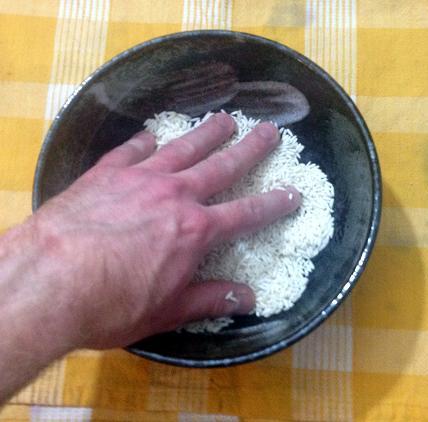 Dogen spends a long time on rinsing rice, with good reason. Rice is the staple food of Japanese (and therefore also Zen Buddhist) culture and requires careful cleaning to properly cook. The metaphor he uses of the separation of the rice and impure water is repeated many times throughout the essay and refers to the act of keeping important thoughts and actions, while discarding unimportant ones.
Dogen spends a long time on rinsing rice, with good reason. Rice is the staple food of Japanese (and therefore also Zen Buddhist) culture and requires careful cleaning to properly cook. The metaphor he uses of the separation of the rice and impure water is repeated many times throughout the essay and refers to the act of keeping important thoughts and actions, while discarding unimportant ones.
It’s another of my favourite joe-jobs, and I think (no offense to Dogen) that SF food truck king Roy Choi best described it:
“The most important step in cooking rice is how you wash it. Our Western mentality gets us in the habit of washing fruits and vegetables because they are dirty. Washing rice comes from a totally different place. Wash your rice to cleanse, not to clean. Run cold water through the rice and massage the grains, transferring all your energy to the rice as the rice transfers its own energy to you. Try to feel every single grain as you swirl the water. Drain the water and do it again. Get deeper with it. Turn off your phone. F–k the world for a minute. Drain the water and do it again and again and again. Minimum three times or up to at least five times or even more if you’re feeling kinky about it.”
Organisation
“…before preparing rice and soup for the noon meal bring together the rice pots and other utensils and make sure that everything is well-ordered and clean. Put whatever goes to a high place in a high place and whatever goes to a low place in a low place so that, high and low, everything settles in the place appropriate for it.”
While cleaning up your workspace, you might as well unclutter it too. Move everything off of the counter top that isn’t work-related – Flower arrangements, car keys, cell phone chargers, etc. It may be tucked into some corner far away from your food, but it’s still there in your peripherals, cluttering your thoughts and bumping against your elbows while you work the knife. Get rid of it all.
One thing I always forget to do until I’m elbow deep in prep is to lay out a couple bowls or plates and the compost bucket next to my workspace before I begin. This allows you to cut, peel ‘n place everything with as little movement as possible and prevents the distracted wandering around the kitchen that ensues… Someday, I’m going to get with the program.
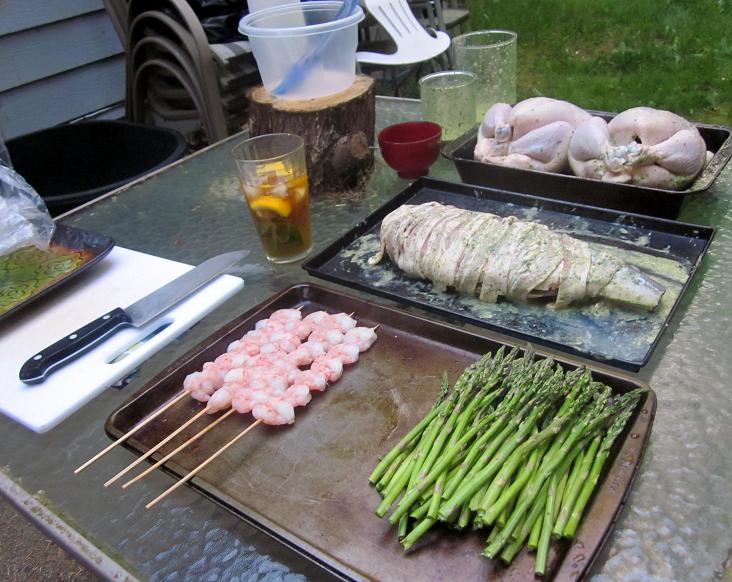 The last thing to do before work begins is assembling your Mise en Place. Lay out your ingredients next to the cutting board and select all the utensils you’ll need to process them. Carrots need a peeler and chopping requires a chopper. Have a potato and want to try your hand at tournéeing? You’ll need a paring knife. If you plan not to leave your seat during the whole of prepping session you will find the experience a lot more relaxing.
The last thing to do before work begins is assembling your Mise en Place. Lay out your ingredients next to the cutting board and select all the utensils you’ll need to process them. Carrots need a peeler and chopping requires a chopper. Have a potato and want to try your hand at tournéeing? You’ll need a paring knife. If you plan not to leave your seat during the whole of prepping session you will find the experience a lot more relaxing.
Relaxation
“…through complete practice of seeing the nature of things you will be able to find a way. If this isn’t clear to you it is because your thoughts speed about like a wild horse and feeling-tones careen about like a monkey in the trees. Let the monkey and horse step back and be seen clearly and the gap is closed naturally.”
Now that you’ve finished your dishes, poured the wine and found your chair… Just. Breathe.
After a maddening day of work in a pro kitchen my monkey mind is buzzing like all get out and the (comparatively) slow act of washing dishes and cutting cucumbers at home is a tonic as sweet as that first glass of wine. I sit down at my table, close my eyes, and re-affirm why I love to cook.
Maricel E. Presilla, author of the Latin American cookbook La Gran Cocina Latina councils that (like most South American ladies) one should sit while performing prep at home. She says, “Sitting down is the Zen of the Latin kitchen.”
I couldn’t agree more. It really dials down the speed-demon urges in my chopping arm and encourages languid conversation with guests and loved ones.
Processing
“In preparing food, it is essential to be sincere and to respect each ingredient regardless of how coarse or fine it is.”
Now, getting down to business…
Slice, chop, grate, pound, strain and prepare all the ingredients for your feast in the manner according to their specific cooking method, and while you’re doing it, concentrate on each movement. Each slice can become the same slice if you focus the mind and relax the arm.
As you go, really look at the carrots and the radishes and whatever it is you are working on. Think about the earth it was pulled from, the sun and rains that nourished it, the farmer who pulled it up and the hungry mouths that will soon slurp it down. Heck, take a nibble right now! I’m serious, taste everything that you work on, just a little, I won’t tell.
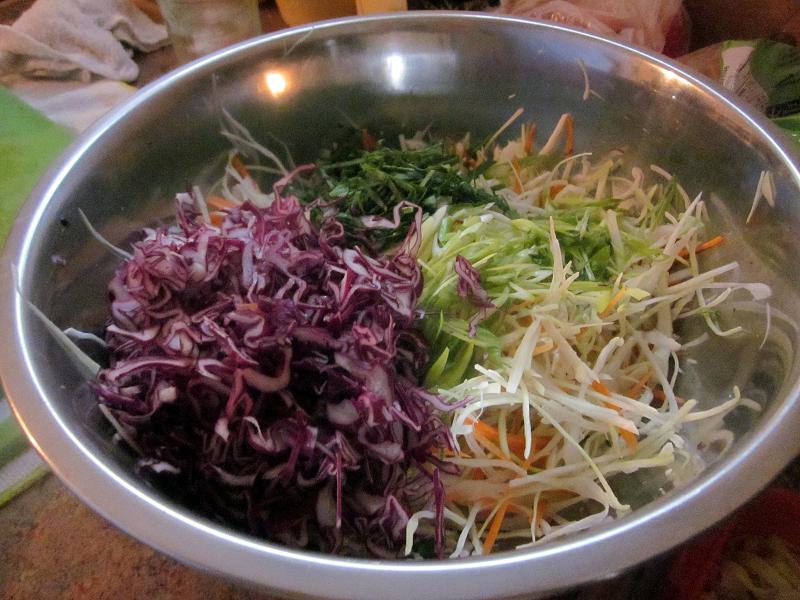 The smell of prep is intoxicating. Each ingredient releasing it’s juices into the air, wave after wave. You can smell the recipe building, imagine the finished dish as you get close to the last cut.
The smell of prep is intoxicating. Each ingredient releasing it’s juices into the air, wave after wave. You can smell the recipe building, imagine the finished dish as you get close to the last cut.
Stack your work neatly into the per-arranged plates and take a moment to re-center yourself. Breathe in, sip on the wine and relax. Soon your meditative prep session will give way to the dynamic and exciting cooking process. The process of careful thought and action has built the foundation of your meal, now all that’s left is to light the fire… But just take a second, have another glass and reflect on how much you learned and how much fun you had doing all that stuff people hate to do.
Cooking should be fun, and maybe prep should be less of a chore and more of a communal experience. With a couple people helping out you get it done in a blink, or maybe you let it ride a bit longer…The conversation is too good! Some of the best nights of my life have been spent in kitchens full of people doing the most menial tasks you can think of, shooting the breeze and figuring out this beautiful catastrophe called life.
If I’ve given the impression that I’m a David Carradine in the kitchen, don’t start bowing… ‘Cause I’m not. I make a hundred mistakes in my work kitchen every day, and then come home and try to sort it all out in my home kitchen. All of these mistakes come from either not thinking at all or rushing around and making simple, stupid, snap judgements without taking the time to analyze and understand the situation fully.
Dogen understood this. He was after all, a cook trained in the Buddha’s great science of the mind and he knew that the quality of the food at his temple was directly connected to the passion and (more importantly) the engagement of his cooks. Good Prep is the foundation of a good meal, and really engaging in the act of prep makes a killer chef.
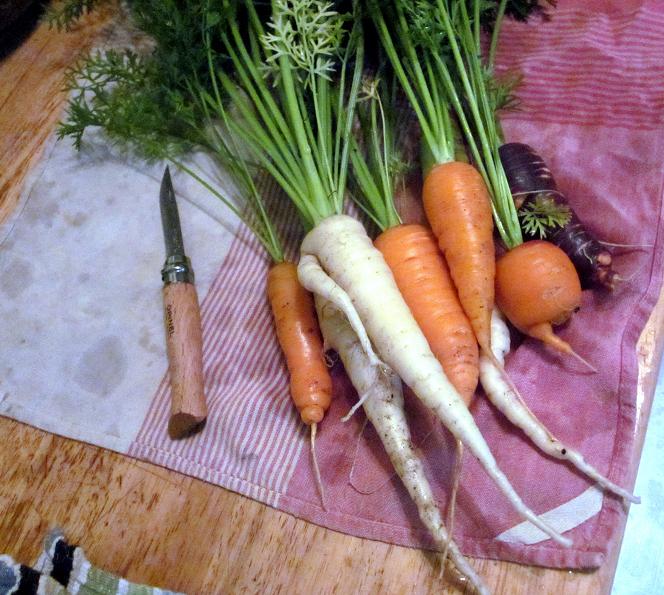 Michael Ruhlman in his tremendous book Soul of a Chef reports of chef-legend Thomas Keller:
Michael Ruhlman in his tremendous book Soul of a Chef reports of chef-legend Thomas Keller:
“He loved to wipe a counter clean. Because this was where perfection began. At this clean counter was where we learned not to waste anything and not to err, because when you made a mistake or when you didn’t care, or you didn’t appreciate that carrot that you were peeling, it was a waste of life itself.”
I think that Dogen would approve.
Big love to all the Tenzos and their dishwashers.
Awesome. Realized why I prepare the way I do. Wish you were closer to do some of the prep together. Thanks Shawn
I’d love that too!
We always need spare hands around the table, especially on a weekend. I’ll keep your seat warm and a glass waiting!